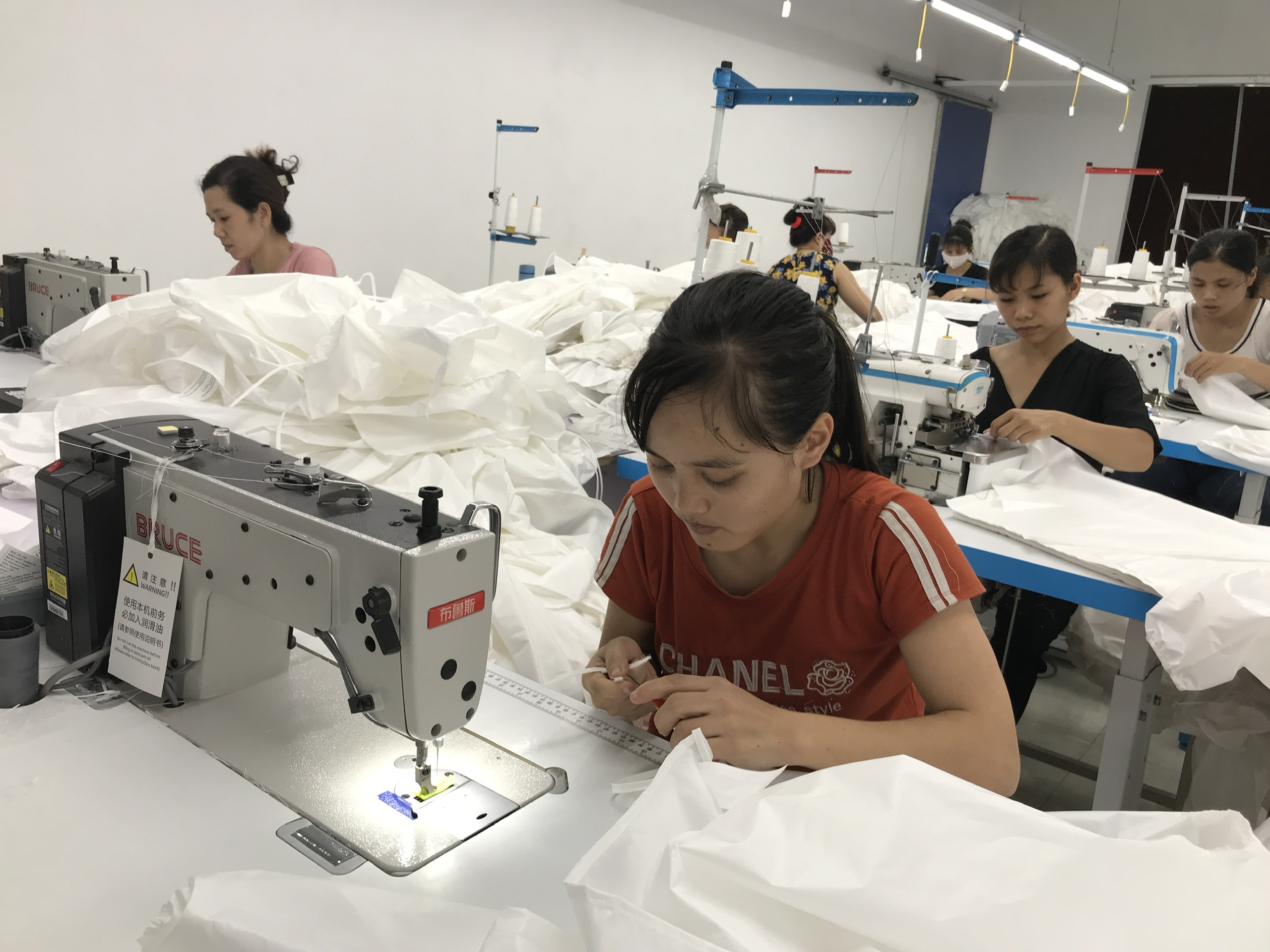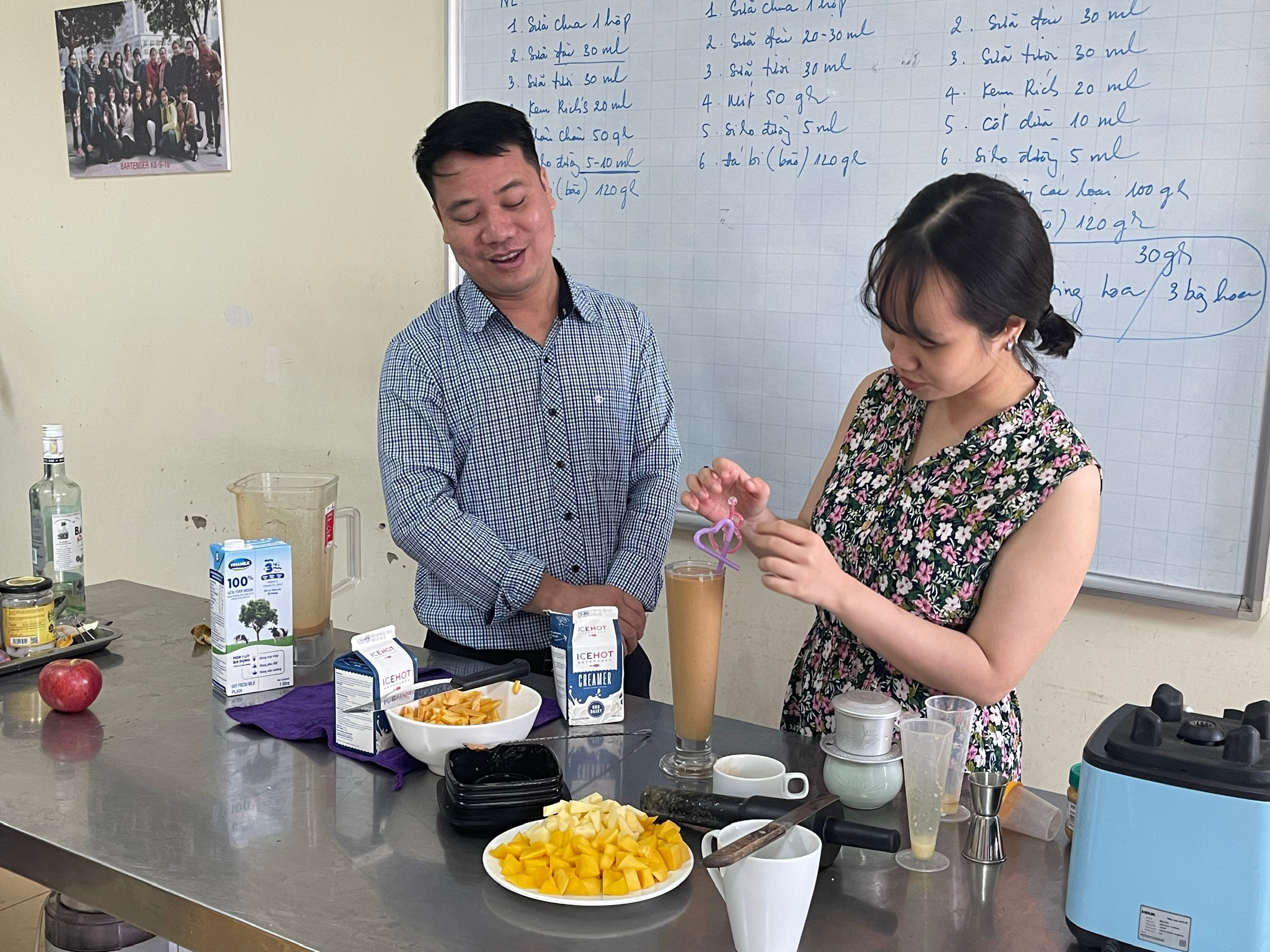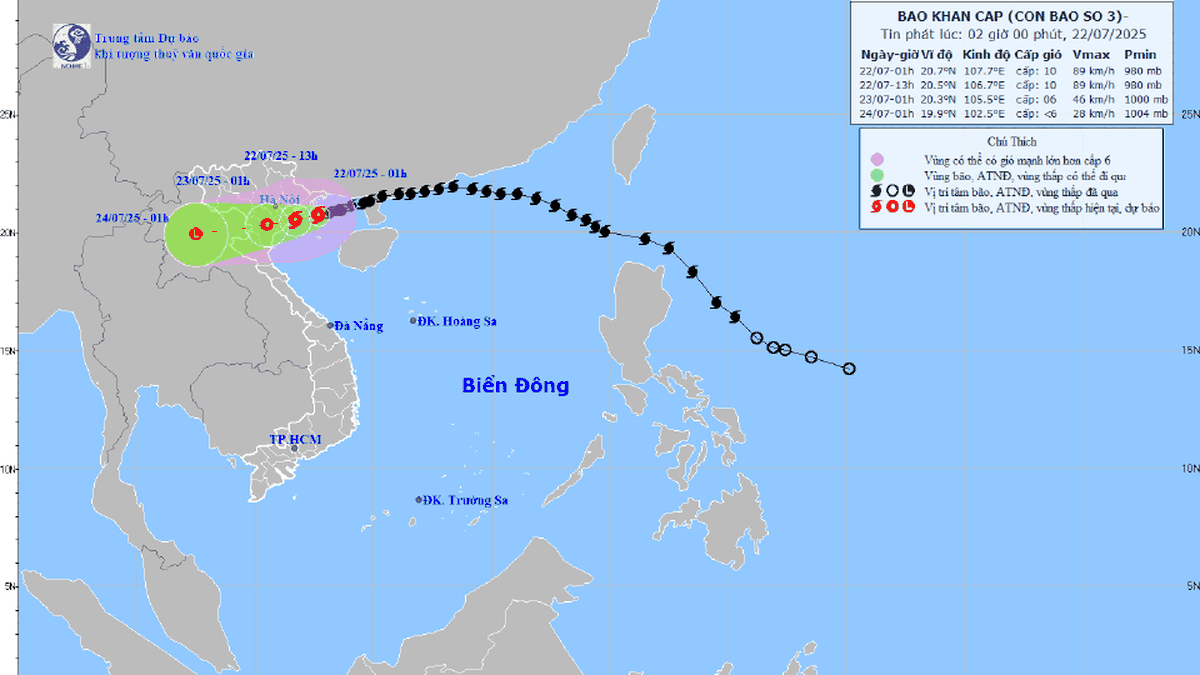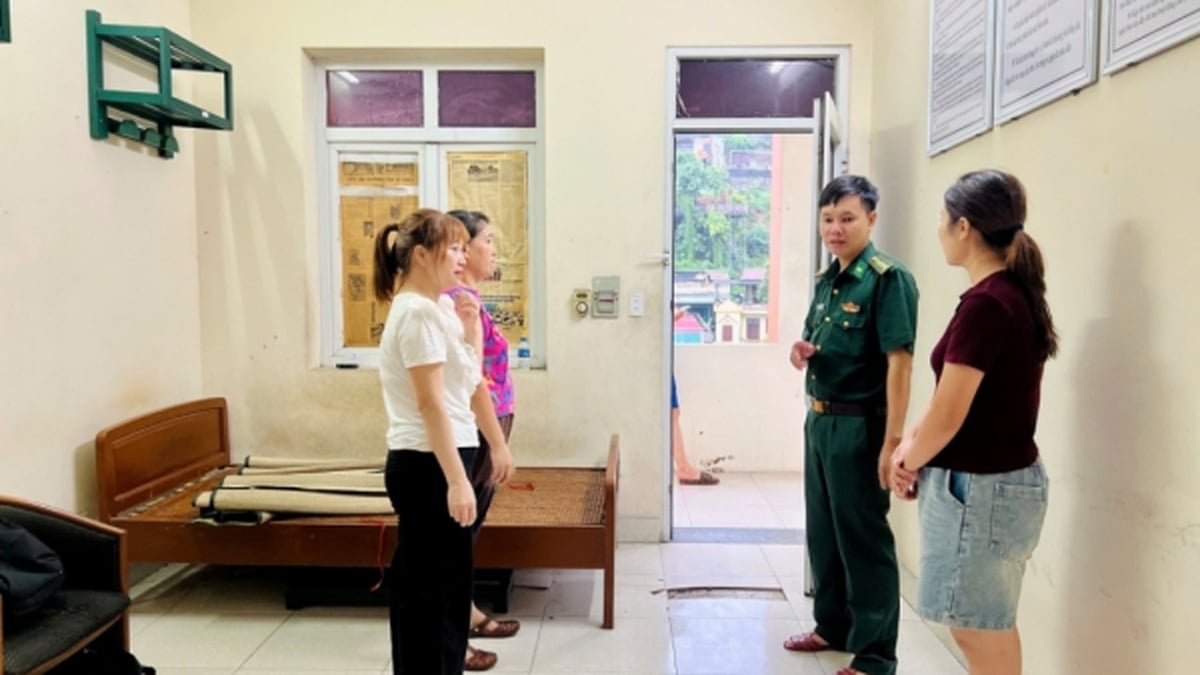To support farmers and restore sustainable agricultural and rural development, the Ministry of Labor, Invalids and Social Affairs recently consulted the Prime Minister to issue many relevant documents to strengthen and innovate vocational training for rural workers.
Nearly 10 million rural workers receive vocational training
Recently, reporting on the results of implementing solutions to remove difficulties and obstacles to support farmers and restore sustainable agricultural and rural development, Mr. Le Tan Dung - Deputy Minister of Labor, Invalids and Social Affairs also said that the Ministry of Labor, Invalids and Social Affairs has issued many specific solutions.
The Ministry submitted to the Secretariat to issue Directive 21 on continuing to innovate and improve the qualityof education by 2030, with a vision to 2045; and develop and implement Directive No. 21.
In addition, the Ministry has also developed and is submitting to the Prime Minister for promulgation the project "Innovation and improvement of rural vocational training quality", which proposes many solutions to improve the effectiveness of rural vocational training, thereby helping to develop sustainable agriculture and rural areas. The Ministry is also developing and finalizing to submit to the Prime Minister for promulgation a decision amending and supplementing Decision 46, which supports elementary level training and training under 3 months, in which rural workers are the beneficiaries.
According to the General Department of Vocational Education (Ministry of Labor, Invalids and Social Affairs), after 10 years of implementing Project 46, implementing Vocational Training for Rural Workers, the whole country has trained nearly 10 million rural workers, of which 4.6 million people are eligible for vocational training support.
Vocational training for poor households, near-poor households, people with disabilities, ethnic minorities, female workers, and policy beneficiaries has received attention, with 2.1 million people receiving vocational training support.
The system of vocational training facilities has been gradually improved, some facilities have been invested in the direction of modernization and standardization. Vocational training resources for rural workers are basically maintained through national target programs.
Basic vocational training is suitable to learners’ needs, linked to local socio-economic development plans, and new rural construction. After vocational training, the number of workers with jobs, labor productivity, and income of people increase.

The Department of Labor, Invalids and Social Affairs of Phu Tho province cooperates with businesses to provide vocational training and create jobs for rural workers. Photo: NT
Vocational training results have contributed to improving the quality of human resources, shifting the rural economic structure towards increasing the proportion of industrial and service economy; ensuring food security; creating jobs, increasing income, improving the material and spiritual life of people; building new rural areas, and sustainable poverty reduction.
However, vocational training for rural workers in recent times has not met practical requirements, and there are still limitations and weaknesses. Some targets have not been achieved. Rural workers are mainly trained at the elementary level and for less than 3 months, and the quality of training is still low, especially in remote areas and ethnic minority areas.
Along with that, the conditions to ensure the quality of vocational training are still inadequate. Activities to support people after vocational training have not been implemented effectively.
Therefore, in order to make vocational training for rural workers in-depth, effective, sustainable and substantive, the Secretariat requires Party committees at all levels, Party organizations, authorities, the Vietnam Fatherland Front, and socio-political organizations to focus on leadership, direction, and good implementation of a number of key tasks and solutions.
Innovation in vocational training for rural workers is the focus
In order to strengthen the Party's direction in vocational training for rural workers, the Secretariat recently issued Directive No. 37-CT/TW on innovation in vocational training for rural workers, meeting the requirements of industrialization and modernization of agriculture and rural areas.
According to preliminary reports, in the past 3 years, the country has trained about 1.8 million workers each year, of which about 60% are primary workers (mainly rural workers). Currently, although the project on vocational training for rural workers has ended, localities are still implementing vocational training for rural workers as part of the national target program on sustainable poverty reduction.
In this document, the Secretariat requires the need to effectively take advantage of the opportunities of the Fourth Industrial Revolution. From there, vocational training for rural workers is associated with training and fostering to improve digital skills for people, contributing to the development of the digital economy and digital society in rural areas; developing high-quality human resources...
The Directive emphasizes the need for comprehensive innovation, improving the quality and effectiveness of vocational training for rural workers; updating occupations, standardizing content, and assessing the quality of training programs.
Strengthening education on professional ethics and knowledge of occupational safety and hygiene, especially focusing on practice, especially from production and business practices; enhancing the application of science and technology, digital transformation in all stages of the training process.
The Secretariat also requested Party committees, Party organizations, and authorities at all levels, especially leaders, to regularly lead, direct, strengthen inspection and supervision, and attach importance to the quality and effectiveness of vocational training for rural workers.
Develop vocational training plans in line with the labor market, socio-economic development plans, vocational training and employment needs of the people, associated with the preservation and promotion of cultural spaces and tourism potential in rural areas. Organize vocational training in association with the model of good farmers and businessmen, aiming at economic restructuring and large-scale production.

On average, each year Vietnam trains more than 1 million rural workers. Photo: NT
Along with that, it is necessary to research, implement programs, and issue vocational training policies for rural workers until 2030, in conjunction with the implementation of national target programs for the period 2021 - 2030. Continue to prioritize vocational training for workers who are policy beneficiaries, meritorious people, people from poor households, near-poor households, ethnic minorities, and people with disabilities; pay attention to vocational training for junior high school graduates who switch to vocational training.
In addition, it is necessary to effectively take advantage of the opportunities of the Fourth Industrial Revolution. Promote vocational training associated with advanced and modern production methods, suitable for green agriculture, organic agriculture, high-tech agriculture; promote multi-value integration, increase added value, promote regional, area and local advantages.
In particular, there are investment policies and support for innovation, start-ups and collective economic development in rural areas. Implement training and retraining programs and projects to serve job conversion for people due to climate change and the impact of the Fourth Industrial Revolution.
Another solution is to ensure resources and improve training support policies for rural workers, especially support in terms of capital, means of production, product consumption, and job placement after vocational training. Encourage private and foreign-invested enterprises to develop vocational training facilities for rural workers...
Source: https://danviet.vn/tao-dot-pha-trong-dao-tao-nghe-de-phat-trien-nong-nghiep-nong-thon-ben-vung-20241107152043244.htm






















![[Photo] National Assembly Chairman Tran Thanh Man visits Vietnamese Heroic Mother Ta Thi Tran](https://vphoto.vietnam.vn/thumb/1200x675/vietnam/resource/IMAGE/2025/7/20/765c0bd057dd44ad83ab89fe0255b783)















































































Comment (0)